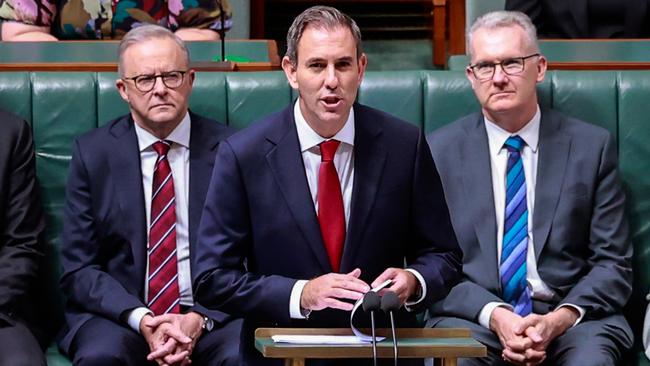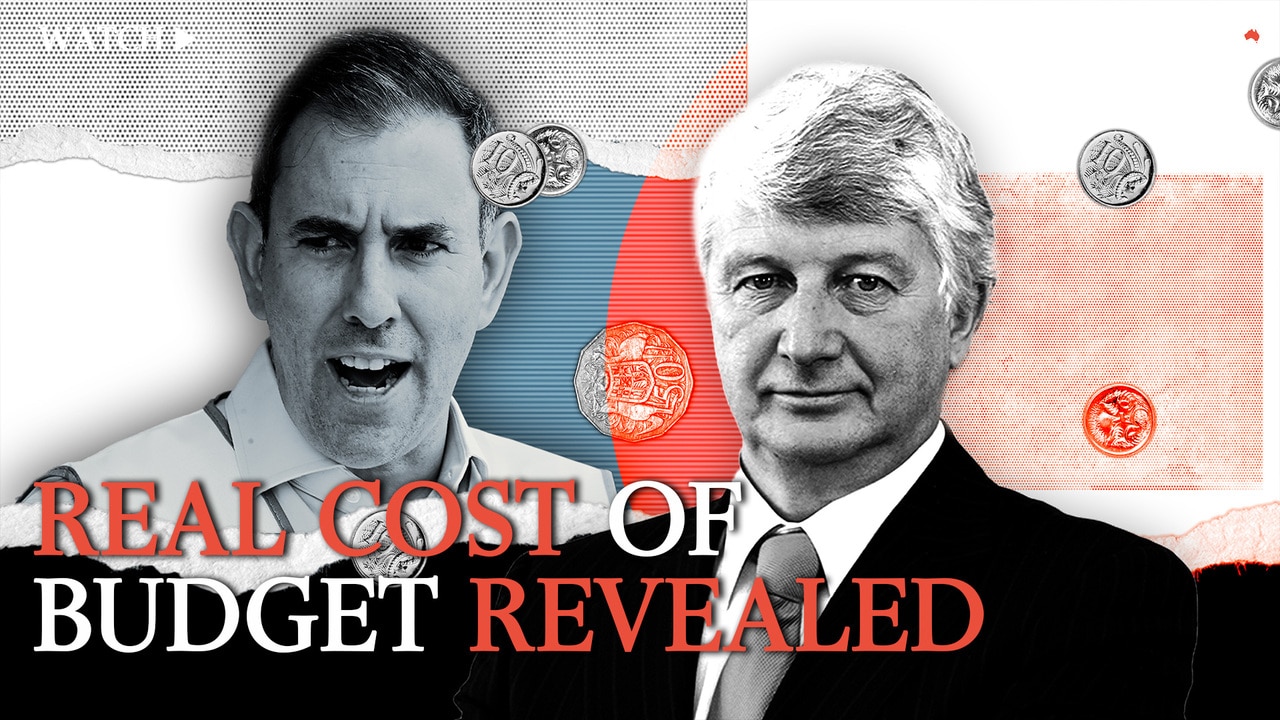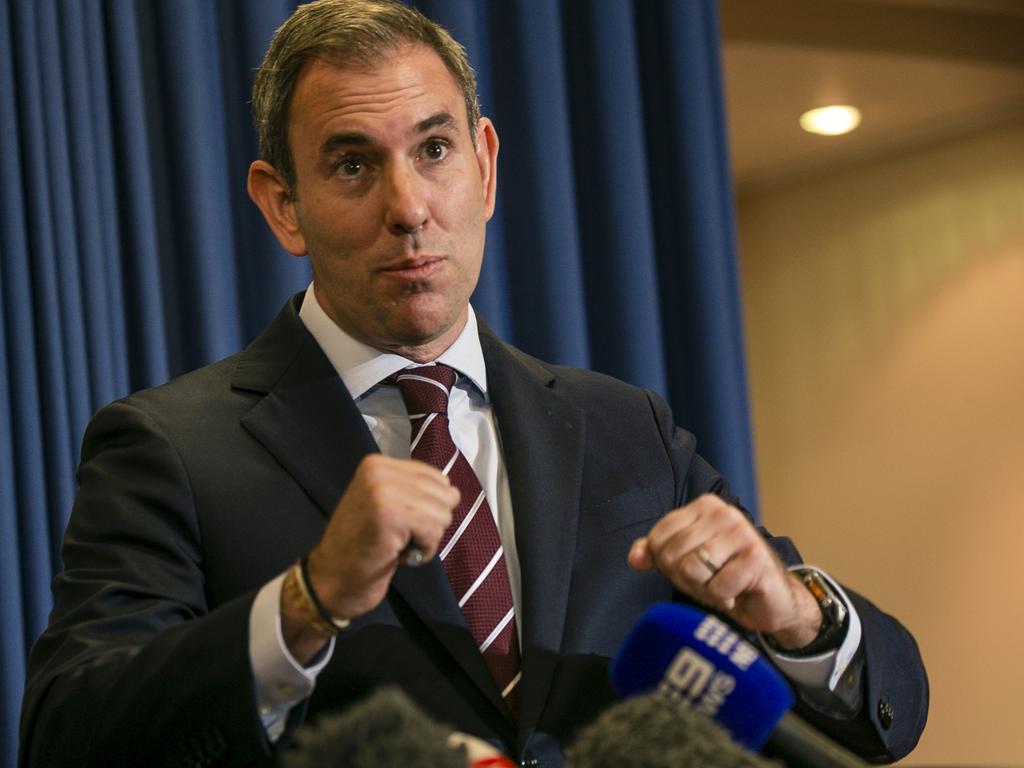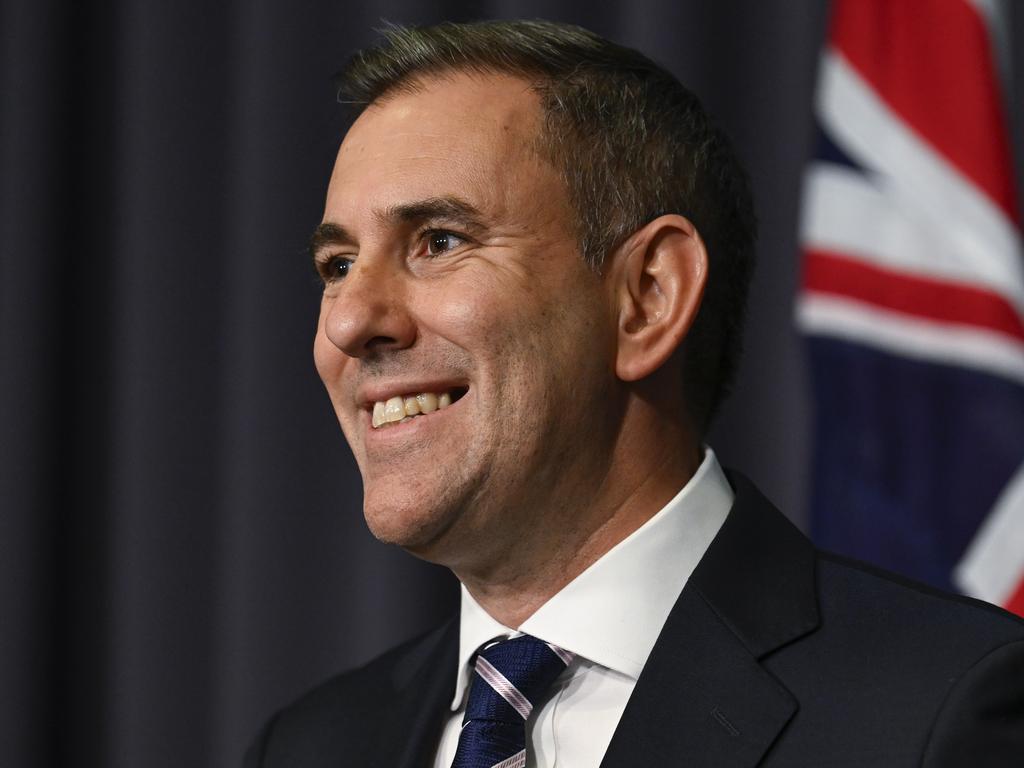
In other words, it’s exactly the budget that families smashed by elevated living costs during the Big Inflation will be able to easily digest, forget about in a hurry, and get back to home-front worries.
Feeling ignored? Here’s a $10 a week tax cut, more like a modest “cut-let” that Labor cheekily claims comes after its first-round of savoury cuts last year.
Plus you’ll get two more $75 discounts off your power bills; what started as an untargeted ploy to trim the official measure of consumer inflation – bring on pre-election rate cuts! – has become a feature, not a bug, of Labor’s money-go-round.
The capital’s spending as a proportion of the economy has expanded by almost 11 per cent in no time at all: from 24.4 per cent of gross domestic product in Labor’s first year in office to 27 per cent next financial year.
A brave alternative national leader with a sharp mind could demolish this default setting in a determined policy blitz, yet Labor is in no danger of facing such an assault from its opponents.

In his budget speech, the Treasurer claimed “the worst is behind us and the economy is now heading in the right direction”.
The jobless rate is forecast to remain near its record-low post-crisis rates and Treasury expects the private sector to do more of the heavy lifting in the recovery from recent insipid growth rates driven purely by migration and public demand.
There are optimistic forecasts for growth in household incomes and consumer spending.
And yet taxpayers will be on the hook again and again. It defies belief that in the current financial year, as the Reserve Bank clenched its teeth and held its nerve to bring down underlying prices growth to striking distance of its 2-3 per cent target band, Canberra increased its (after-inflation) spending by 6 per cent.
Treasury’s commentary, usually straight-faced and straitlaced to a fault, makes this extraordinary claim: “Fiscal policy has worked alongside monetary policy to return inflation to the target band in the second half of 2024, and fiscal settings are consistent with sustainably returning inflation to the target band around the middle of this year.”
And we’re to believe that if it is re-elected, Labor will manage to keep a restive crossbench in both houses happy with a real growth rate in payments of under 2 per cent over the coming four years of the budget cycle? Dream on!
Chalmers once alleged that the RBA’s restrictive monetary policy was “smashing the economy”, but on the spending numbers of the past few years, the Treasurer has been smashing the budget.
Dig into the budget papers and it’s clear the federal sphere is heading in the wrong direction and the worst is ahead of us.
The underlying budget balance has swung from last year’s $15.8bn surplus to this year’s $27.6bn deficit. The coming year’s deficit bleeds to $42.1bn.
Yet that’s not the true picture of our circumstances. Once you factor in the off-budget “investments” on Snowy 2.0, the NBN and Labor’s new intervention funds, the so-called “headline” deficit blows out to $65.2bn for the coming financial year.
Public debt interest due by the end of the four-year budget period will be $42bn; it was $22bn in Labor’s first year in power. Debt interest as a proportion of national income is set to grow over the next decade, as we continue to rack up budget deficits and build up our stock of debt.

Sure, we look OK for the moment compared with other rich nations – the US, Japan, Britain and Euro area – and their flabby fiscal balances and eye-watering debt levels, but we’re a smaller economic entity and our business model relies on trade in commodities and services. And the health of the Chinese economy.
Chalmers insists we’re “turning the corner”, but we may well be running into a brick wall.
Donald Trump’s trade war with the rest of the planet is a clear threat to our prosperity. Never mind that we are not among the primary targets for his tariff pain; we will not escape the second round effects of the ensuing chaos and protection racket, mafia-style hits to growth, inflation, investment and consumer confidence.
“The use of tariffs by major trading partners could lead to higher import prices and temporarily higher inflation and lower growth,” Treasury says of the likely consequences.
It can’t help itself by injecting a dose of sunny calm into the outlook: “Nonetheless, the progress the Australian economy has made over the past couple of years means it is well placed to manage these challenges.”
This language won’t trigger the policy adjustments – fiscal, regulatory, industrial and social – the nation needs but the political system is increasingly incapable of delivering.
Over the term, pumped on by extravagant revenue gifts from the world, the Albanese government has established a defective fiscal baseline and tendency that simply feeds the beast.
Exceptionalism is the idea that we Aussies are special and can have it all, through a have now, pay later culture enabled by Canberra’s political and policy elite.
The election will be fought in a netherworld of denial and obfuscation. The political class does not have the heart to level with voters that the dog days are over.
The Treasurer is willing a “soft landing” for the economy this year, but in the real world a hard fiscal reckoning awaits. It’s a question of when, not if, in an angry world where the love has gone wrong for a medium-sized free trader, lost at sea.






Jim Chalmers has delivered a gutless budget. It’s loose on new spending, timid on structural reform, lacks strict fiscal rules, spreads the progressive love, and expands the footprint of the social-welfare and our new “making stuff” super-abundant state.